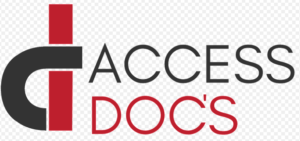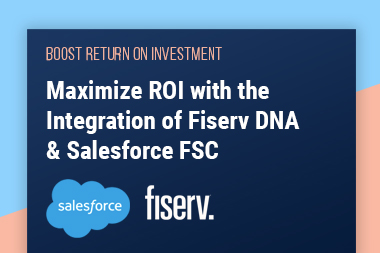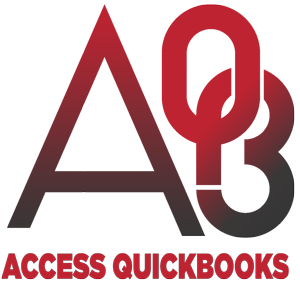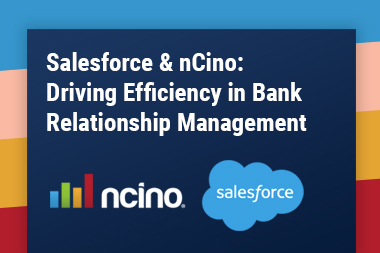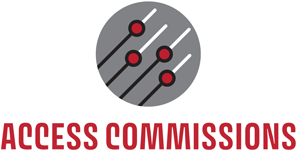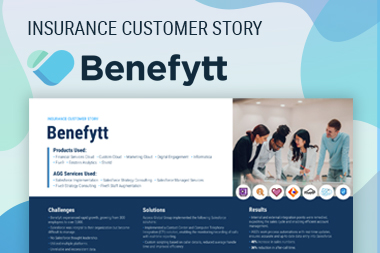Salesforce Solutions: Accelerating Bank Sales with Data Standardization
Jenna Trott | MARCH 29, 2024 | 5 Minute Read

However, as technology continues to evolve at dizzying rates and leveraging tools like Salesforce’s Einstein AI becomes ubiquitous, data standardization emerges as a necessity to ensure that these tools are being utilized to their highest potential.
In this blog, we’ll be discussing the importance of data standardization in banking and how consultants can help banks leverage Salesforce Einstein Analytics and AI to revolutionize sales strategies in the sector. Because for bankers, harnessing the power of data isn’t just about gaining a competitive edge — it’s about ensuring long-term success and resilience in an increasingly digital world.
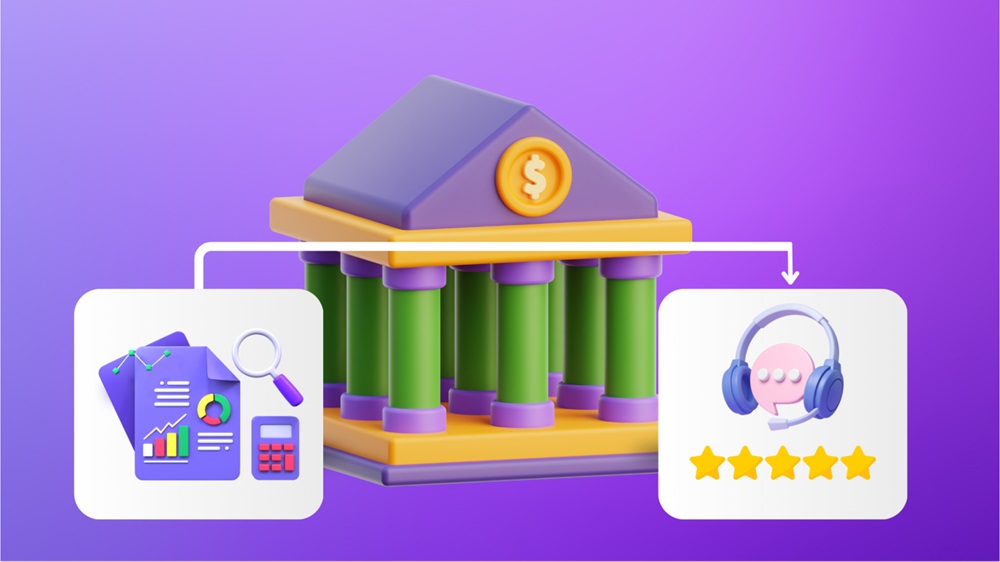
The Importance of Data Standardization in Banking
In a landscape marked by rapid technological advancement, the urgency of prioritizing data standardization might seem counterintuitive. With the expansion of cutting-edge technologies, some may assume that data issues will naturally resolve themselves. However, the reality paints a different picture. The overflow of information resulting from these advancements often lacks reliability, clarity, and consensus, leading to inefficient and costly business processes. For businesses spanning from financial firms to banks, embracing data standardization holds immense promise:
- Banks would gain an enhanced understanding of client needs and improved risk management from standardized data.
- Regulators stand to gain from better trend identification and risk assessment across firms and markets, bolstering their ability to manage local and systemic risks.
- Standardization facilitates seamless data sharing among firms and regulators, curbing redundancy and fostering greater collaboration.
- At its core, data standardization fosters trust, accountability, adaptability, and efficiency—critical elements in the fabric of the financial sector.
Due to the sensitivity surrounding finances, financial institutions must be synced interdepartmentally in order to acutely detect, understand, monitor, remedy, and recover from risks that may arise within the institution. This can only happen if everyone has access to the same meticulously curated, high-quality, and precise information. Banks, understanding the systemic fragility that stems from information gaps, emphasize the criticality of data standardization. Yet, progress has been slow, which begs the question — why? Let’s take a look.

Banking’s Battle with Standardization
While banks are in agreement that data standardization must occur, the journey toward achieving it has been fraught with challenges. Things like competing priorities, financial constraints, and a lack of cohesive focus within the industry have all contributed to this sluggish advancement. While certain areas, such as the adoption of Legal Entity Identifiers (LEIs) in derivatives markets, have shown promising strides, the overall improvements in data standardization remain modest.
Other challenges include the significant upfront costs associated with standardization, which deter some institutions from fully committing to the endeavor, despite the long-term benefits it promises. Additionally, the lack of adequate IT infrastructure poses a considerable barrier, hindering banks from harnessing the full potential of standardized data. Addressing these challenges necessitates a collaborative approach, marked by a willingness to listen, learn, and compromise. Achieving broad buy-in and implementing well-designed standards are crucial steps toward attaining the uniformity essential for effective data standardization within the banking industry.
So, what can be done? This is where Salesforce Consultants come in.

Strategic Partnerships for Data Standardization
While Salesforce undoubtedly offers a robust and user-friendly platform for storing and managing data, it’s essential to recognize that it alone may not suffice as the golden rule for data management, especially within the intricate landscape of banking. Banks leveraging Salesforce must also consider the invaluable role that Salesforce consultants can play in ensuring that their data practices are up to par. These consultants bring a wealth of expertise and specialized knowledge to the table, guiding banks through the complexities of data governance, integration, and optimization. Here’s how:
Assessment and Strategy Development: Salesforce consultants work with the bank to assess the data landscape, pinpointing inconsistencies, redundancies, and inefficiencies. From there, they craft a tailored strategy for data standardization aligned with the bank’s unique needs and objectives.
Data Governance Framework: Governance is key and consultants aid banks in creating strong data governance frameworks, encompassing policies, procedures, and protocols for maintaining data quality, consistency, and integrity. This ensures consistent implementation of standardized data practices throughout the organization.
Data Integration and Migration: Streamline data integration with the assistance of Salesforce consultants by crafting seamless solutions that integrate data from diverse sources. Consultants can also facilitate accurate and efficient data migration, adhering to standardized formats and structures.

Customization and Configuration: As experts in configuring and customizing, Salesforce consultants can tailor orgs to meet the unique needs of banks. This includes customized data fields, layouts, and workflows to align with standardized data formats and ensure consistency across the organization.
Training and Change Management: Move forward confidently with comprehensive training programs from consultants. They ensure bank staff grasp the importance of data standardization and its effective implementation in daily workflows. Additionally, they support change management efforts to instill a culture of data standardization across the organization.
Continuous Improvement: Salesforce consultants collaborate with banks to continuously monitor and optimize data standardization efforts. This includes regular audits, data quality checks, and refining processes to address emerging challenges or opportunities for improvement.
Once your data has been polished and standardized, banks can unlock the full potential of Salesforce’s Einstein Analytics and AI to accelerate sales. Let’s take a look at how this powerful combination can drive success.

Leveraging Salesforce AI and Einstein Analytics to Accelerate Sales
Salesforce’s recent AI developments heralds a new era of optimization and innovation, particularly within the realm of banking. Due to its ability to swiftly and accurately analyze vast data sets, AI revolutionizes banking operations, from enhancing customer service to refining risk management, and everything in between. Per Salesforce, Banks are already benefiting greatly from AI in accelerating sales processes and enhancing customer experiences.
Salesforce’s AI functions as a personal assistant, aiding relationship managers in improving lead and opportunity scoring across various banking services and products. By predicting likely performance outcomes for different business lines, AI enhances forecasting accuracy, whether in investment, commercial, or retail banking. With predictive AI surfacing relevant insights in a single dashboard, relationship managers can deepen existing client relationships or capture new ones efficiently. Generative AI further enhances this process by integrating data from multiple sources to make relevant suggestions in the workflow, thereby increasing the accuracy and relevance of recommendations.
This combination of predictive and generative AI helps relationship managers understand the best channels to reach clients with compelling offers, ultimately reducing the time required to understand customer needs while enhancing their overall experience. Furthermore, AI-driven marketing tools enable marketers to create highly personalized marketing segments within seconds, resulting in improved engagement and conversion rates. Overall, AI’s role in banking is just beginning, promising to help banks offer more to customers while streamlining costs and efforts in the background.


Getting Started
Salesforce offers a comprehensive solution tailored for banks to thrive in today’s dynamic and digitally-driven market. Yet, its effectiveness heavily relies on the quality of the data it contains, posing a challenge for many banks in terms of standardization and management. Salesforce consultants play a crucial role in addressing this challenge by spearheading customized data-cleansing solutions for each bank. By ensuring optimal data quality, banks can unlock the full potential of Salesforce, enabling them to better serve their customers and stay competitive in the rapidly evolving financial landscape.
Access Global Group is a Salesforce Summit (Platinum) level partner with nearly two decades of experience in Salesforce support, maintenance, and management services. We’ll conduct thorough data assessments to identify areas of improvement and work with you to effect meaningful change throughout your organization.
Furthermore, we offer comprehensive training and ongoing support to banking teams, empowering them to confidently navigate future data management and standardization protocols. Whether you’re looking to better leverage Salesforce AI and Einstein Analytics to accelerate sales or get a better understanding of the current state of your data, our team of 5-star rated consultants can help.
We invite you to reach out to us with any questions or concerns regarding your Salesforce instance, we’d be happy to discuss a solution that best fits your needs at this time.
From proposals to quotes, contracts and more, Access Docs allows users to create and send consistent and accurate documentation to clients in a few simple clicks.
A seamless connection between Salesforce and QuickBooks. With automation of key processes, this application works to eliminate manual and duplicative efforts to empower your team.
A seamless connection between Salesforce and QuickBooks. With automation of key processes, this application works to eliminate manual and duplicative efforts to empower your team.
Get the latest Salesforce news
Subscribe to get the latest Salesforce blogs, guides, industry reports, events, and all things Salesforce related!
Let's Get Started on Your Salesforce Project!
Salesforce Innovations Transforming Insurance and Underwriting
At Access Global Group, we are committed to sustainability in every aspect of our operations. As a global leader in technology, specializing in remote work-from-home solutions…
Access Global Group Strategic Partnership With PeerIslands
At Access Global Group, we are committed to sustainability in every aspect of our operations. As a global leader in technology, specializing in remote work-from-home solutions…
Access Global Group Sustainability Annual Report
At Access Global Group, we are committed to sustainability in every aspect of our operations. As a global leader in technology, specializing in remote work-from-home solutions…
Digital Transformation Powered by Dedication & Expertise! Chat With Our Experts Today!



